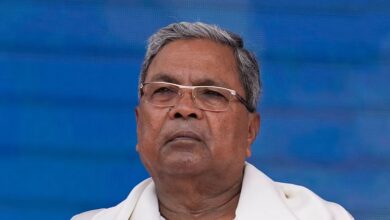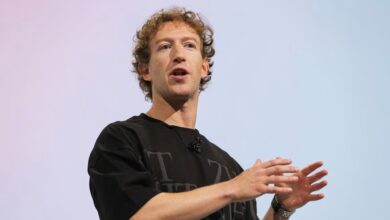The digital boom is sweeping Egypt and effectively reshaping the economic and cultural identity of the nation. Various challenges remain but Egypt seems set on an irrevocable path toward digital embrace.
Digital media pervades nearly all facets of life today. The Internet is used for both social and professional purposes.
Con O’Donnell, co-founder and managing director of the digital media and marketing pioneer, Sarmady Communications, said that Internet usage and digital media are indispensable components to any business model today.
"People are no longer asking 'Should I spend money on digital marketing?'" O'Donnell told Al-Masry Al-Youm. "They are asking now about where should I spend and how much."
The total number on Internet users in Egypt has increased from 14.9 million at the end of the second quarter of 2009 to 19.7 million at the same juncture in 2010, according to the Egyptian Ministry of Communications and Information Technology. That's a growth rate of an astounding 32.3%.
Managing Director of Emerging Markets – Nielsen Online, Diego Semprύn, said those figures represent Egypt's path toward becoming a competitively "connected" society. "I think it's going to reach the worldwide average level," said Semprύn during the “Digital Boom” Conference which was organized last month to discuss the prospects and challenges of digital media in Egypt.
However, precise information on the nature of Internet users–utilized by companies to target potential consumers in advertising and marketing campaigns–is lacking, said Managing Director for UM Cairo Dina Hashem.
"Facebook is everywhere in Egypt but we don't know about the habits and trends of those users," said Hashem. "We need to know what the advertisements are that would attract such users."
Semprύn said that "online ads are quite effective in changing consumer behaviors; however steps still need to be taken from the advertiser's side to actually engage more of their budgets."
Online advertising represents just 1% of total spending in the region, but is expected to become "the fastest growing media sector over the coming years," according to the latest annual report by Dubai Press Club. Online advertising accounted for 12% of total global advertising expenditures in 2009 and is forecasted to reach 18% by 2013.
Google Marketing Manager in the Middle East and North Africa region, Wael Ghoneim, said this region spent US$100 million on online advertising in 2009 compared to US$8 billion in total advertising expenditures.
But that miniscule percentage appeared poised to change. In recent years digital media has spread throughout banking, finance and real estate sectors and greater focus on digital advertising is likely to follow, said Karim Khalifa, CEO and co-founder of Digital Republic, an innovative Digital Advertising Agency based in Cairo and Dubai.
“This new media is highly effective in terms of targeting, interactivity, entertainment, and it also talks to a very wide audience," explained Khalifa.
Mobinil and Coca-Cola are examples of companies that have profited substantially from incorporating social media into their marketing strategies.
Speaking about what he described as a major success story, Omar Mandour, General Manager at Coca-Cola for Egypt, Libya, and Sudan, said social media has enabled his company to effectively reach consumers—the younger generation in particular—in an unprecedented way.
"What we had in the past is a traditional media message from the advertiser to the consumer," said Mandour. "Now, thanks to social media, we have an interactive relationship with our consumers where we can get their feedback in a fast, direct and effective way."
Mandour said this approach cultivates the fertile ground of future consumption. “Digital media has enabled us to set a long term plan aims at building up a strategic relationship with teens who will lead the consumers market."
Coca-Cola launched a Youtube channel in December 2009 that has since landed four million views. Mandour said advertising through social media also allows a company to avoid burdensome requirements imposed by TV channels.
But obstacles remain. Nielson's Semprion explained the challenges are centered on building and engaging content, instilling the intended message into an audience, and financing digital media usage.
Sarmady's O’Donnell offers another challenge. He said a disconnection exists between companies and advertisers because of the esoteric terminology used in the digital media advertising world. This makes companies reluctant to explore digital media, according to O'Donnell.
Despite this challenge, he said digital media advertising is of grave importance and laying the groundwork for a long-term strategy is vital.
"Coming with a budget is not enough, you should have to think about long term engagement where you can learn and adapt in an evolving process," O'Donnell added. "You are going to make mistakes but you will later manage and willing to make changes that will make you gain 100 times over your competitors."
O’Donnell believes digital media in advertising will thrive and, as a result, severely detriment traditional media.
"I do think that the series fever during Ramadan is not going to happen again. What has been done is wasting money and fragmentation of the audience. TV in a nutshell will suffer," said O’Donnell.
The newspaper industry will suffer as well, according O’Donnell, unless “they are smart enough to have a very clever digital strategy that they will transfer.”
Digital Republic's Khalifa argues that digital media will not comprehensively substitute traditional media. "New" and "old" media, according to Khalifa, will need to work together in the future.
Google's Ghoneim disagreed, saying digital media poses a real threat to traditional media because "what is popular in traditional media is not necessarily popular in digital media."




